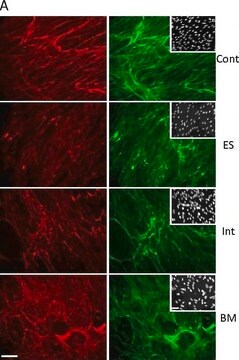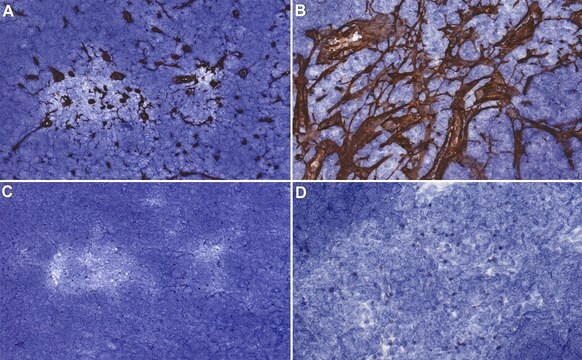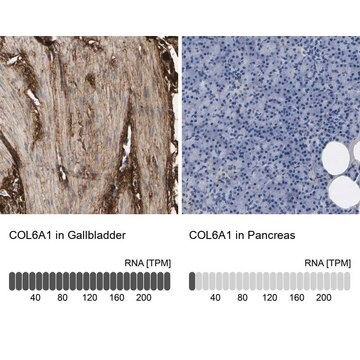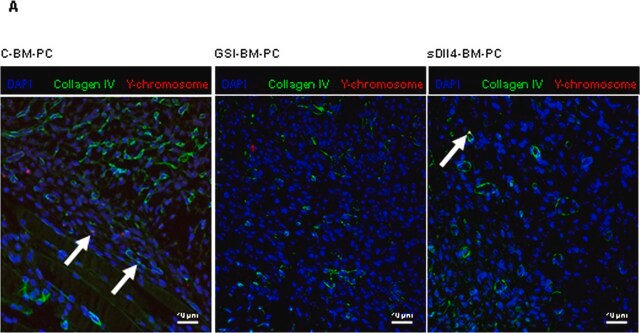MAB3303
Anti-Collagen Type VI Antibody, clone VI-26
clone VI-26, Chemicon®, from mouse
Synonym(s):
Anti-BTHLM1, Anti-OPLL, Anti-UCHMD1
About This Item
IHC
immunohistochemistry: suitable (paraffin)
Recommended Products
biological source
mouse
Quality Level
antibody form
purified immunoglobulin
antibody product type
primary antibodies
clone
VI-26, monoclonal
species reactivity
human, rabbit
should not react with
rat
manufacturer/tradename
Chemicon®
availability
not available in Japan
technique(s)
ELISA: suitable
immunohistochemistry: suitable (paraffin)
isotype
IgG1κ
NCBI accession no.
UniProt accession no.
shipped in
dry ice
target post-translational modification
unmodified
Gene Information
human ... COL6A1(1291)
Specificity
Application
EIA
Optimal working dilutions must be determined by end user.
Cell Structure
ECM Proteins
Physical form
Storage and Stability
Analysis Note
Testis, connective tissue
Other Notes
Legal Information
Disclaimer
Not finding the right product?
Try our Product Selector Tool.
Storage Class Code
12 - Non Combustible Liquids
WGK
WGK 2
Flash Point(F)
Not applicable
Flash Point(C)
Not applicable
Certificates of Analysis (COA)
Search for Certificates of Analysis (COA) by entering the products Lot/Batch Number. Lot and Batch Numbers can be found on a product’s label following the words ‘Lot’ or ‘Batch’.
Already Own This Product?
Find documentation for the products that you have recently purchased in the Document Library.
Our team of scientists has experience in all areas of research including Life Science, Material Science, Chemical Synthesis, Chromatography, Analytical and many others.
Contact Technical Service






